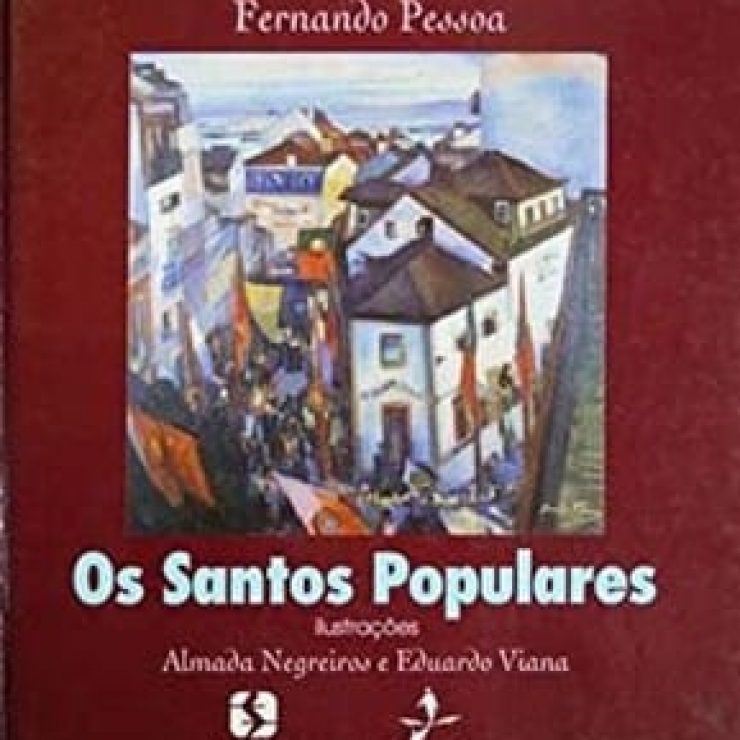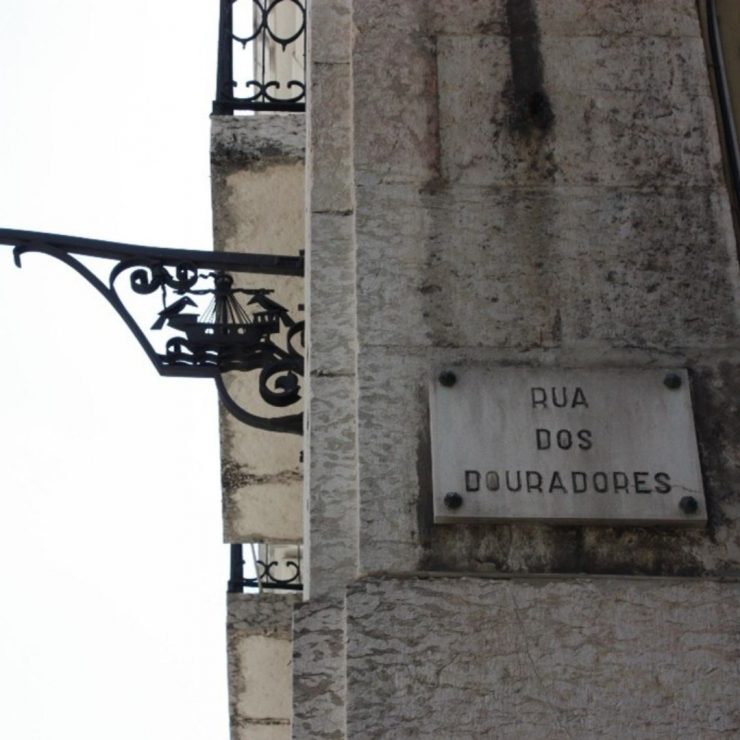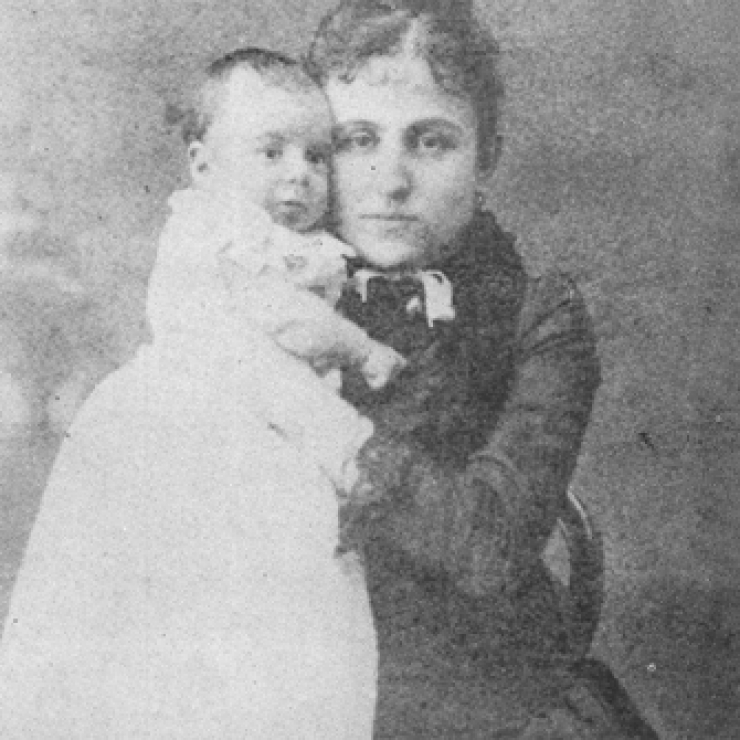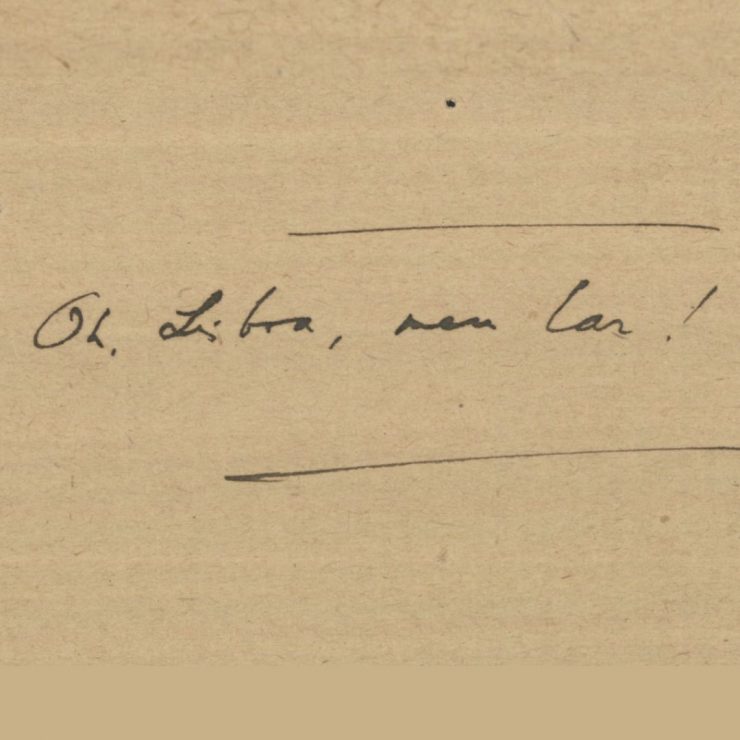An important period in the life of Fernando Pessoa, the year of 1919 establishes, on an international context and particularly in Europe, the official cessation of the hostilities of the Great War (1915-1918), following the signing of the Treaty of Versailles in June, a few days after Pessoa turned 31. Here is how the writer experienced that period and what he was writing precisely one century ago in Lisbon.
Political disquiet
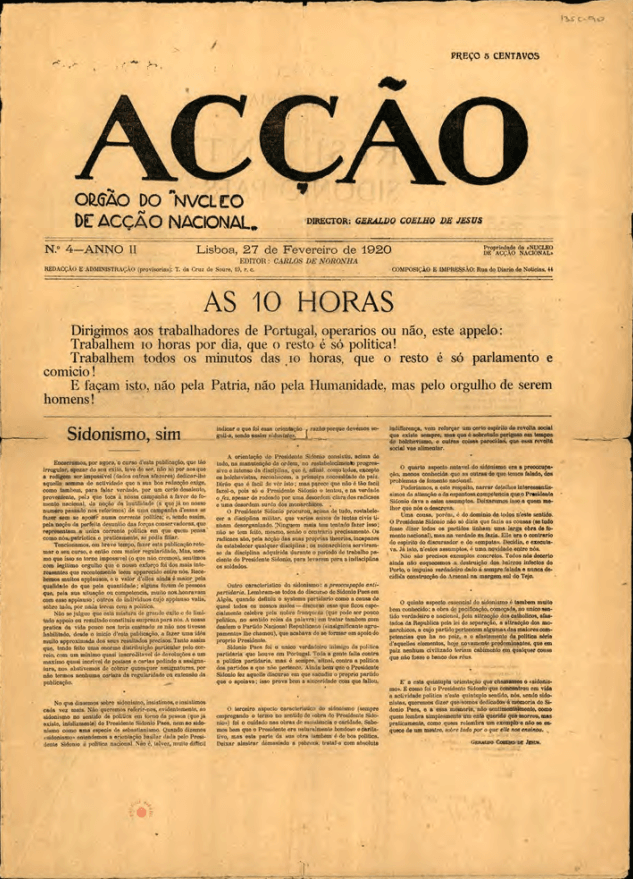
Although a peaceful solution had been reached for the first global conflict, civilizations and nations were still experiencing a sense of disquiet and Portugal, in this context, was no exception. It does not come as a coincidence, in fact, that Fernando Pessoa closely followed the political upheavals of his country, which produced, from a literary standpoint and among others, a part of the “biography” of the heteronym Ricardo Reis. A physician and a classicist poet, author of the renowned Odes and a staunch monarchist, Reis self-exiled in Brazil on 13th February, the day when the Republican army defeated the militants that in January had proclaimed the Monarchy in the North of Portugal, precisely in Porto, Reis’s “hometown”. Pessoa dialogues with the Portuguese current affairs not only through his heteronymic fictions, since between May and August of 1919, the writer published two political essays called «How to organise Portugal» and «Public Opinion», in the Acção magazine, which supported the ideology of the late President Sidónio Pais. These are, until this date, the only two works published by Pessoa during that year.
The year of Love
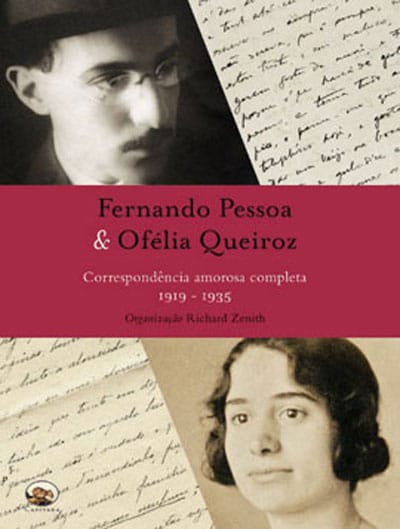
In Pessoa’s biography, the year of 1919 became mostly known not for a political nor a literary matter, strictly speaking, but rather for a very intimate and personal one. This was his romance with Ofélia Queirós, the only women with whom Pessoa, during his life, embarked on a relationship, relatively long and undoubtedly striking on many levels. The two met in downtown Lisbon, in November, at the company Félix, Valladas & Freitas, Lda, headquartered at Rua da Assunção no. 42, 2º, one of the many companies where the poet worked as a translator. After having worked together for a brief period, Fernando and Ofélia fell in love and the relationship begun, supported by letters, dates across the city of Lisbon, tram trips and… a deep endearment:
«I went mad, in a haze…
I lost count of my kisses,
I held her close to me,
Cradled her in my arms,
Got drunk on her embrace…
I went mad, so you see…»
(Pessoa, in Lopes, 1990, p. 60)
«Nininho» [lit. “Wee One”] and «Bebé» [“Baby”] were a couple in two distinct periods, approximately between 1919 and 1920 and between 1929 and 1930. The romance did not culminate in a marriage, since Pessoa failed to have the economic and psychological conditions to build a family. Furthermore, Pessoa knew he was a genius and he had already realised (or decided?) that his literary mission left no room for other “commitments”. Much could be said of this love, which was authentic and meaningful for both. And we will surely have, in 2019, plenty of occasions to celebrate the 100th anniversary of this important chapter of the life of the great writer…
Bringing China to… Benfica
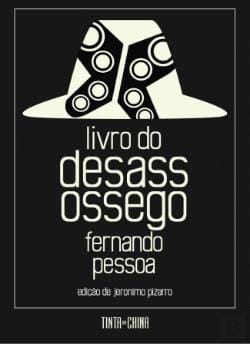
Regarding the vast work that was only discovered when Pessoa died (1935), the year of 1919 was quite prolific, mainly with works by the heteronym Alberto Caeiro, who wrote Poemas Inconjuntos that year, a work that Pessoa backdated so that it could be compatible with Caeiro’s fictitious biography, the master of the heteronyms, who, in the Pessoan drama, had “passed” in 1915. Here is one of his poems, written in 1919:
“O, shepherd on the hill, so far away from me with your sheep –
The happiness you seem to have – is it yours or is it mine?
The peace I feel when I see you – does it belong to me or to you?
No, it belongs not to you nor to me, shepherd.
It belongs only to happiness and peace.”
(Pessoa, 1925, p. 200)
Still regarding the Pessoan poetry production, one finds, from this period, several orthonymous poems and relatively few by the heteronyms Álvaro de Campos and Ricardo Reis. There are plenty of verses with great depth on one of the dimensions that greatly fascinated the philosophical soul of Pessoa: reflecting on the one and the multiple, on the finite and the infinite, and on its paradoxical connections:
«Every path leads us everywhere.
Every point is the centre of the infinite.»
(Pessoa, in Lopes, 1990, p. 121)
As for the Book of Disquiet, which Pessoa produced between 1913 and 1934, from 1919 one finds a segment in which the author, in one of his daydreams, immerses himself “in a dream that I am a retired major in a rural hotel» (Pessoa, 2013, 207). This is one of the images of «hotel» that Pessoa produced during his life and work. It should be noted that, in 1919, Pessoa was still leading a somewhat nomadic life, since the poet did not have a fixed address and roamed around different apartments between the areas of Avenida Almirante Reis and Benfica. The fact that he lived in this area, suburban when compared to the city’s centre, probably inspired him for a passage of the Book of Disquiet, written several years after, an insight on Pessoa’s rationale on travelling and freedom:
«What is to travel and what is the point of travelling? Every west is the west; there is no need to sense it in Constantinopla. The sense of liberation that comes with travelling? I may achieve it by going from Lisbon to Benfica and even more intensely so than one who travels from Lisbon to China, because if liberation is not within me, it will not be, for me, anywhere.»
(Pessoa, 2013, pp. 366-367)
In 1920, Pessoa would finally settle in the house where he lived the longest (and where he eventually passed), at Rua Coelho da Rocha, n.º 16, currently Casa Fernando Pessoa. He initially moved there with his mother, Maria Magdalena Pinheiro Nogueira, who had recentely become a widow of Miguel Rosa, Pessoa’s stepfather, who passed still in 1919.
This year was, as we’ve seen, a period of disquiet and love for the Portuguese poet and thinker. It was an important and striking year in his life, mostly due to the romance with Ofélia. Today, one hundred years passed, Pessoa’s fragments, verses and letters still continue to unsettle and fascinate increasingly more readers, travellers and scholars, in a world that still yearns for peace.
Fabrizio Boscaglia
_
Discover Lisboa & Pessoa from Lisboa Pessoa Hotel, a themed boutique hotel inspired by Fernando Pessoa.
_
Quoted references:
LOPES, Teresa Rita (1990), Pessoa por conhecer: textos para um novo mapa, II, Lisboa, Estampa.
PESSOA, Fernando (2013), Livro do Desassossego, ed. Jerónimo Pizarro, Lisboa, Tinta-da-china.
PESSOA, Fernando (1925), «Escolha de poemas de Alberto Caeiro (1889-1915)», Athena: revista de arte, 5, 197-204.
In Portuguese, the quoted texts have maintained the original spelling of each edition.

